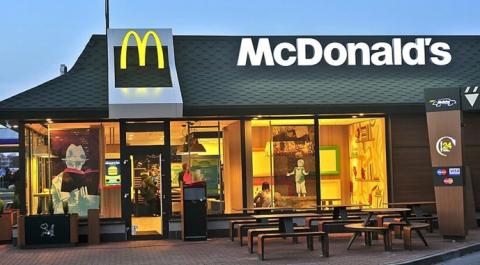The Big Mac Trademark: A David vs. Goliath Tale
In a surprising twist that has sent ripples through the fast food industry, McDonald’s has lost its trademark protection for the iconic Big Mac name when it comes to poultry products. This decision was handed down in favor of Supermac’s, a lesser-known but fiercely competitive fast food chain from Ireland. But what does this mean for one of the most recognizable burgers in the world? Let’s dive deeper into this fascinating story and its implications.
The Legal Battle Unfolds
The showdown between McDonald’s and Supermac’s has been anything but mundane. It’s a vivid illustration of how trademark laws can shape competition in the fast food sector. McDonald’s has long relied on its Big Mac brand, which has become synonymous with burgers worldwide. However, the relentless rise of Supermac’s, which proudly touts its Irish roots, led to this unexpected outcome. In fact, Supermac’s founder, Pat McDonagh, stated, “We felt all along that the Big Mac should not be a registered trademark in Europe.”
What This Means for McDonald’s
With the ruling, McDonald’s faces a potential identity crisis. Imagine walking into a store and seeing something labeled “Big Mac” that isn’t their classic sandwich. This loss could encourage other competitors to use the name in their marketing, leading to a dilution of the brand’s value. Research from the Trademark Office indicates that strong brand recognition is crucial in a saturated market, and losing that edge can have significant financial repercussions. In fact, brands that retain their trademark rights usually enjoy up to 20% higher revenue than those who do not.
A Shift in Strategy
This legal decision could well be a wake-up call for McDonald’s. Adapting to this new landscape will require creative strategizing. Here are some potential pathways for McDonald’s moving forward:
- Rebranding: They may need to innovate and perhaps reignite interest in their current offerings to enhance brand loyalty.
- Expanding Menu Options: Adding new and enticing products that do not ride on the coattails of Big Mac could capture consumer interest.
- Fostering Community Engagement: By focusing on local partnerships and sourcing ingredients from nearby farms, they could create a more appealing, community-oriented brand.
The Small Guy Wins
On the flip side, this ruling is a triumph for Supermac’s and serves as an inspiring lesson for small businesses everywhere. It highlights the importance of perseverance. Supermac’s might be smaller than McDonald’s, but their determination to defend their brand has paid off. They showcased their resolve against a giant, proving that there is always room for the underdogs in the business landscape. According to a recent study, small businesses that embrace a unique branding strategy saw a revenue increase of 30% over their more traditional counterparts.
Conclusion: The Evolving Landscape of Fast Food
As the dust settles, one thing is clear: the fast food industry is changing. McDonald’s, while still holding a substantial share of the market, must recalibrate in the face of this challenge. Supermac’s win is not just a legal triumph but a testament to the power of innovation and resilience in business. The narrative reminds us that brand strength isn’t solely defined by size or history; it’s also about how you adapt to an ever-evolving marketplace. And who knows? The fast food world will continue to surprise us.
Whether you’re a fast food lover or a business owner, this story serves as a powerful reminder that sometimes, the little guys really can prevail against the giants.






